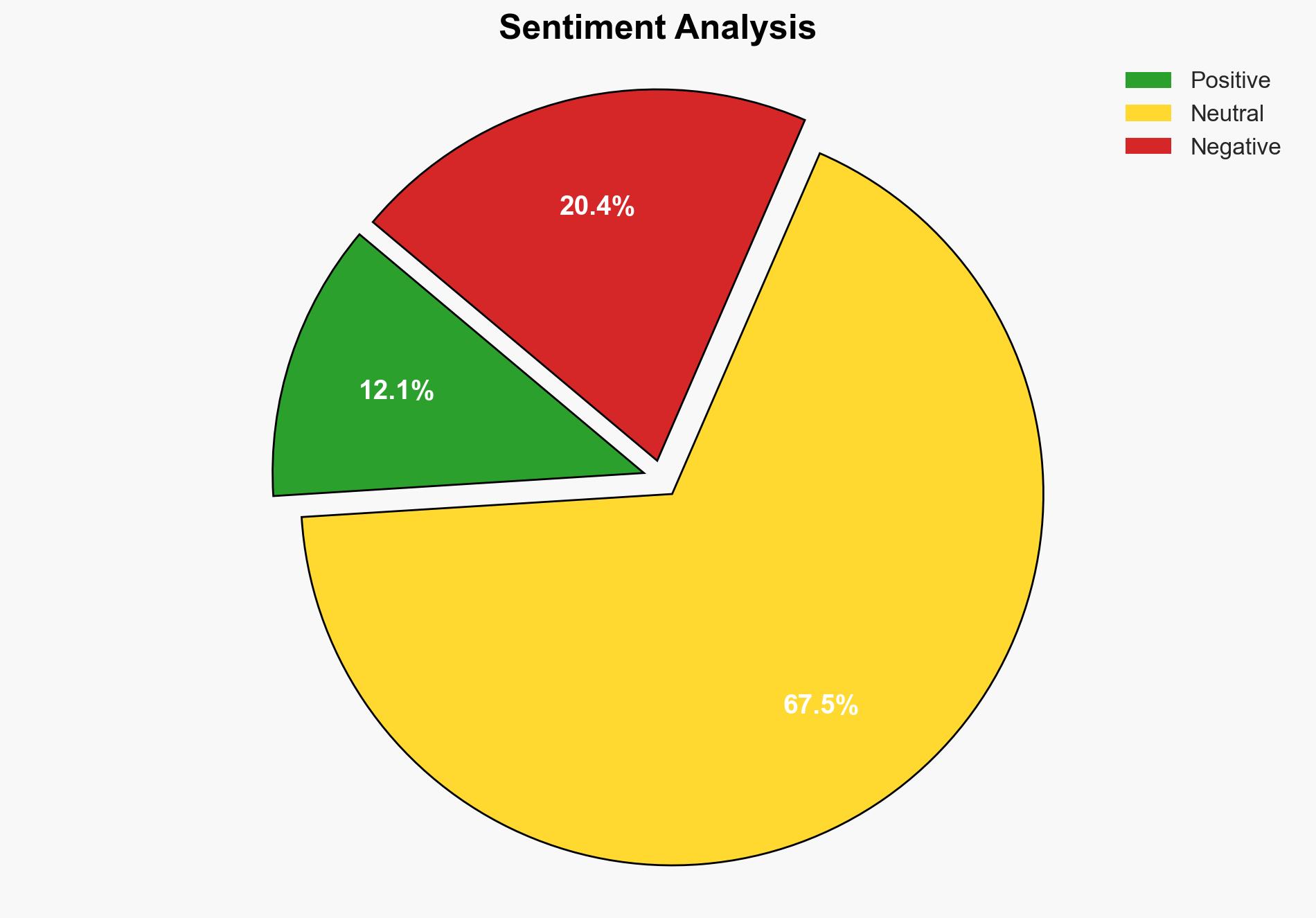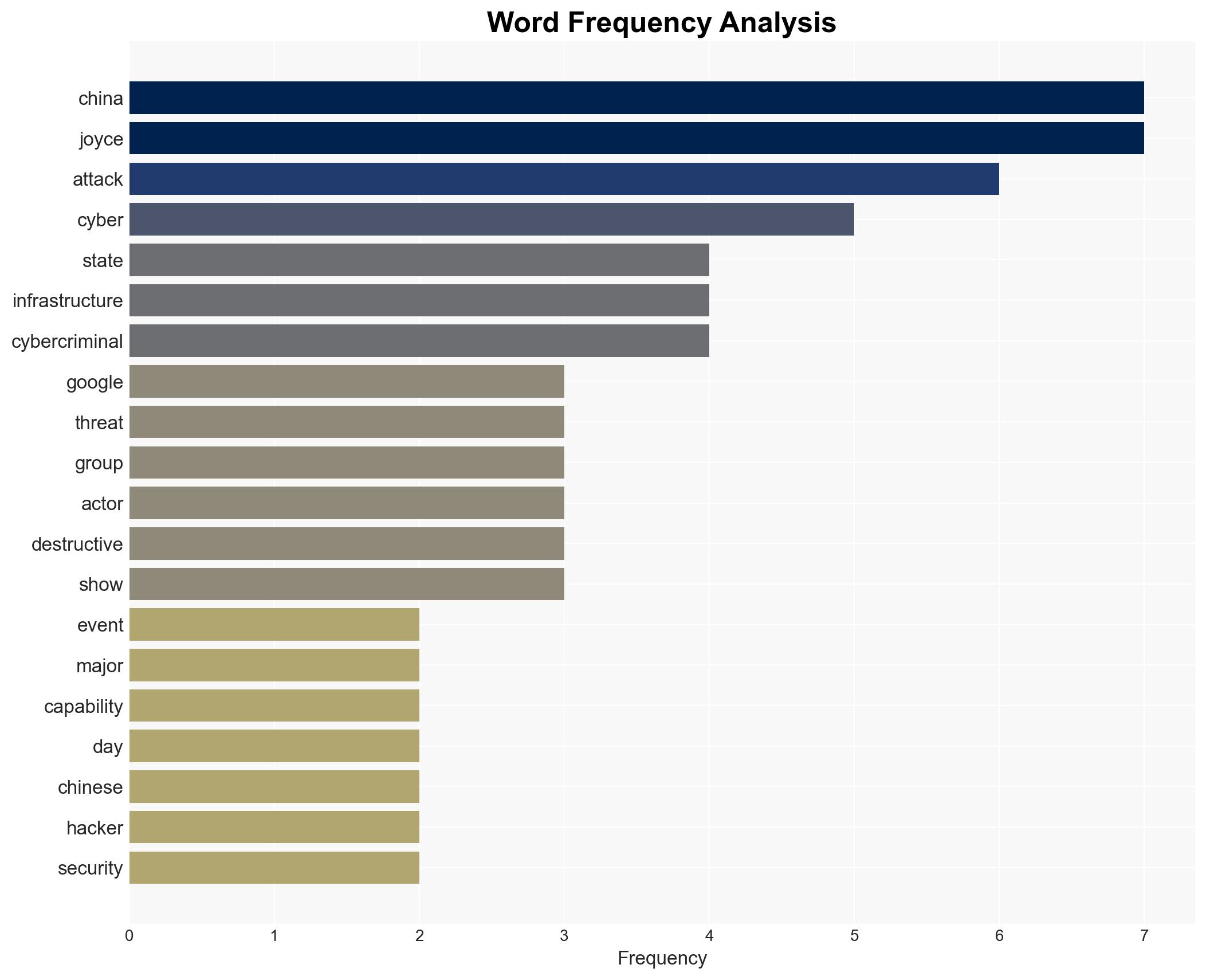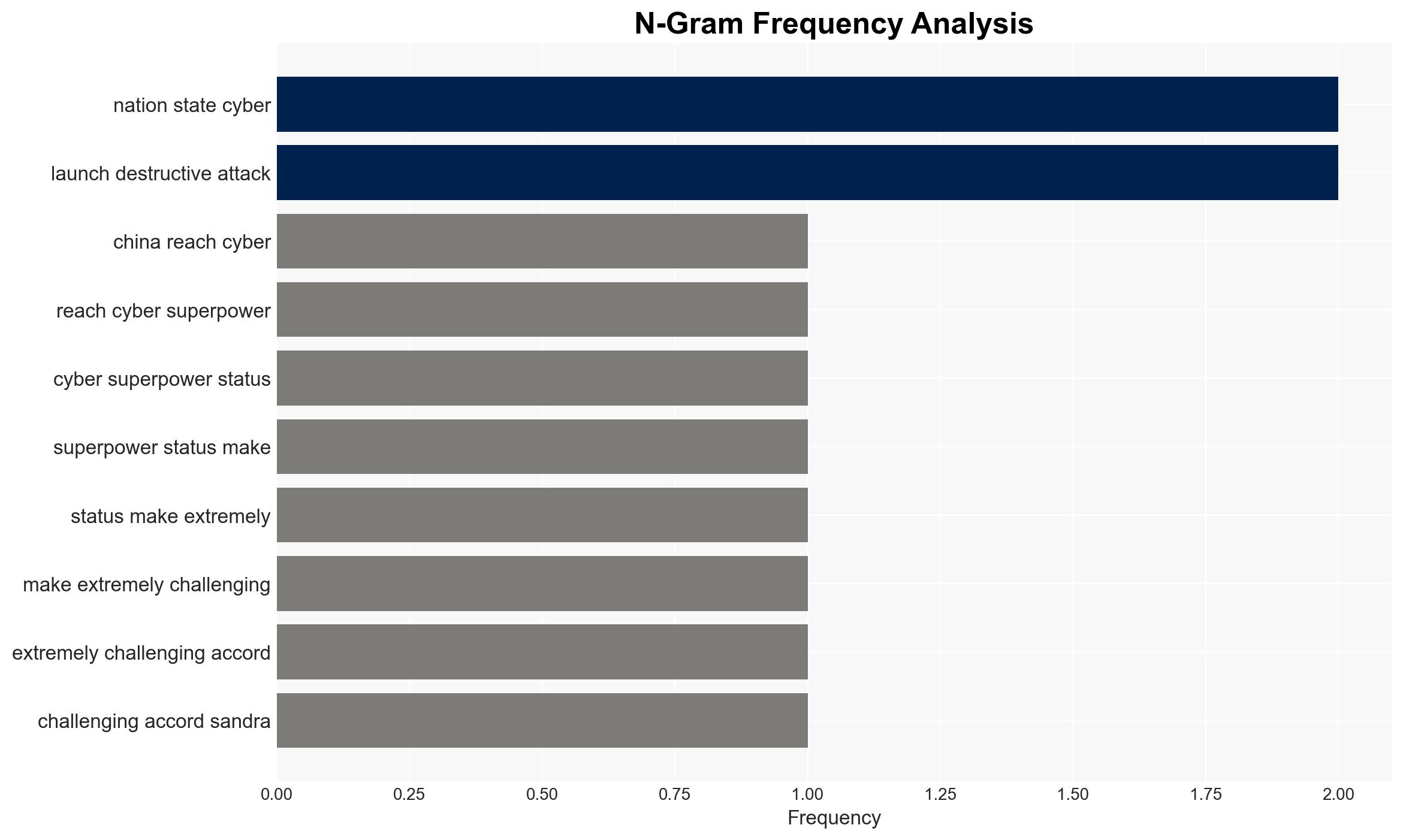Google Cloud China Achieves Cyber Superpower Status – Infosecurity Magazine
Published on: 2025-04-10
Intelligence Report: Google Cloud China Achieves Cyber Superpower Status – Infosecurity Magazine
1. BLUF (Bottom Line Up Front)
China has significantly advanced its cyber capabilities, achieving a “cyber superpower” status. This development poses a substantial challenge to global cybersecurity, with Chinese state actors increasingly exploiting zero-day vulnerabilities and circumventing traditional security measures. Despite their access to critical infrastructure, China has not yet conducted destructive cyber attacks, focusing instead on espionage. The primary threat remains financially motivated cybercriminals, who exploit basic security weaknesses on a large scale.
2. Detailed Analysis
The following structured analytic techniques have been applied for this analysis:
General Analysis
China’s cyber capabilities have grown exponentially, particularly in exploiting zero-day vulnerabilities. The use of sophisticated techniques, such as leveraging visibility gaps in security systems and employing rented infrastructure, allows Chinese actors to remain undetected. The Volt Typhoon group’s prolonged intrusion into US networks exemplifies these capabilities. Despite this, China has refrained from launching destructive attacks, unlike other nation-state actors such as Russia, Iran, and North Korea. Instead, China appears to be positioning itself for potential future conflicts, with espionage as its primary focus.
3. Implications and Strategic Risks
The rise of China’s cyber capabilities presents significant risks to national security, regional stability, and economic interests. The ability to exploit vulnerabilities and remain undetected threatens critical infrastructure, including energy and water systems. The potential for China to launch destructive attacks in the future, particularly in response to geopolitical tensions, poses a strategic risk. Additionally, the increasing automation and scale of cybercriminal activities continue to challenge cybersecurity defenses globally.
4. Recommendations and Outlook
Recommendations:
- Enhance cybersecurity measures to address visibility gaps, particularly in firewalls and edge devices.
- Increase collaboration between government and private sectors to improve threat intelligence sharing.
- Invest in advanced detection technologies to counter the use of rented infrastructure by threat actors.
- Strengthen regulations and policies to deter cybercriminal activities and reduce vulnerabilities.
Outlook:
In a best-case scenario, enhanced cybersecurity measures and international cooperation mitigate the risks posed by China’s cyber capabilities. In a worst-case scenario, escalating geopolitical tensions lead to destructive cyber attacks on critical infrastructure. The most likely outcome involves continued espionage activities by China, with cybercriminals remaining the primary threat due to their scale and automation.
5. Key Individuals and Entities
The report mentions significant individuals and organizations, including Sandra Joyce and Heather Adkins. These individuals provide insights into the current cyber threat landscape and emphasize the importance of addressing both nation-state and cybercriminal activities.




